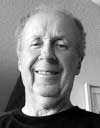As Nova Scotia faced up to the fearful prospect of Hurricane Kyle, all of Canada must now face the prospect of a Harper majority government. Hurricane Harper does not threaten the Atlantic provinces directly, people remember all to well the "culture of dependence" theme which Harper once evoked in talking about the region.
The Harper threat is receding in Quebec, as his negative comments about the arts and culture, and the announced intent of his government to imprison 14-year-olds with adults, has caused the popularity of his government to plummet.
Ontario is where Harper has picked up the pace and can win the seats he needs to form a majority government. Coupled with continued support on the prairies, and Liberal weakness in B.C., if the Conservatives hold on to their existing seats East of the Ottawa river, major gains in Ontario will unleash Hurricane Harper.
The sad irony is that Ontario would be the first and biggest victim of a Harper majority. The Conservative government opposes measures needed desperately to protect Ontario from the stormy weather to the South. An industrial strategy ending dependence on the extraction of resources, and promoting integration of manufacturing and resources is considered by Harper to violate the principles of market competition. Meanwhile industrial job losses mount, and around the world the competition comes from jurisdictions which have never bought into the Harper stock and trade of free markets, such as the Scandinavians and emerging market giants India and China.
While we could wait for Ontario to come to its senses and reject Harper, unease has set in among those studying the mainstream media treatment of the prime minister. The Conservative electoral campaign is limited to the leader’s campaign. Local candidates are not even allowed to speak to the national media. Harper himself does not attend public meetings, or take questions from the media. So have the media revolted? Gone out of their way to portrait Harper for what he is: a fear-mongering tyrant who relies on intimidation in dealing with journalists? Actually, Harper gets the best coverage of any national leader. We can only hope the national media has less power than it once did.
The saddest aspect of campaign 2008 is the treatment accorded Stéphane Dion by the same mainstream media. He has been written off as a professor out of water in national politics, a nerd with no connection to issues that matter to real people and a bumbling campaigner unable to explain his green shift in language people can understand.
When Dion gets to meet people directly, a whole other image emerges. Without the media filter, he smiles, tells jokes and explains himself fluently on the main issues of the day. It is as if the comment by Jean Marchand from 40 years ago still holds. Explaining why he, Jean Marchand, recognized as one of the greatest orators in Quebec history, would not be a candidate to succeed Lester Pearson as Liberal leader, Marchand observed that the English-Canadian media would never give a francophone who spoke English with an accent a fair hearing. Instead of running, Marchand a trade union leader, with an outstanding reputation, encouraged little-known Pierre Trudeau to seek the leadership.
Of course Dion has also contributed to his own misfortunes. He left his campaign at the starting gate by going along with the Conservatives on continuing the futile and unjust mission in Afghanistan. Instead of asserting his leadership, and breaking with the Mission of Folly (as James Laxer entitled his important book on Canada’s war) Dion chose to back Harper, and give up his one chance to endear himself with progressive electors in Quebec and across Canada.
There is much talk of individual strategic voting as the way to stop Hurricane Harper. But the best defence is community action. Riding by riding the Conservatives are well organized, Liberals and NDP less so. There is no use in hoping the Hurricane will blow itself out. It does make sense to organize stop Harper actions on a community by community basis. Taking advantage of the resources available on the internet, determined bands of citizens can change the course of an election. Riding by riding.



